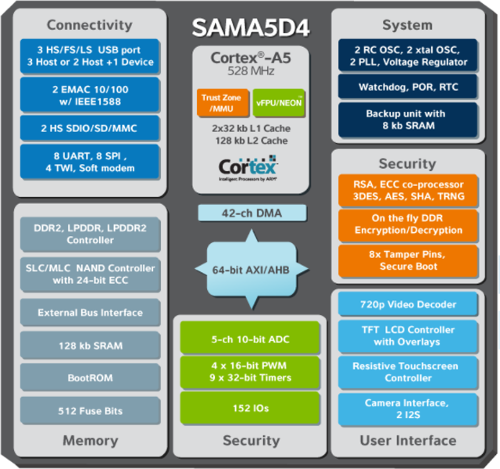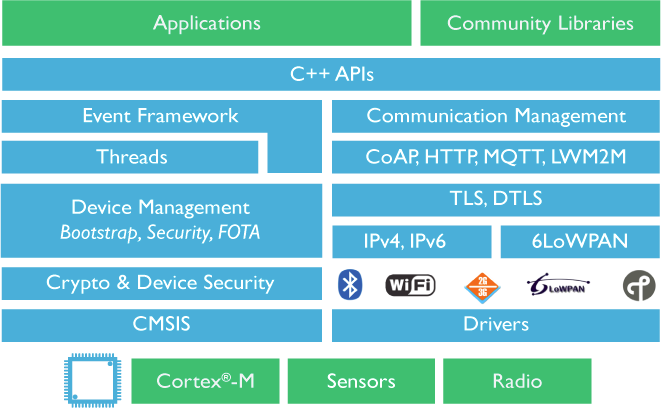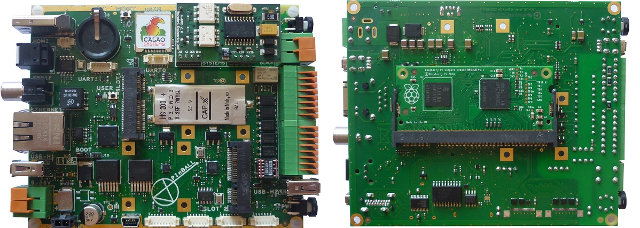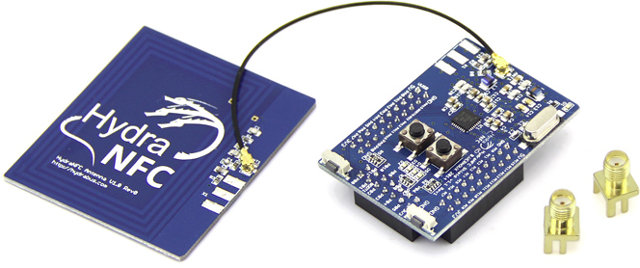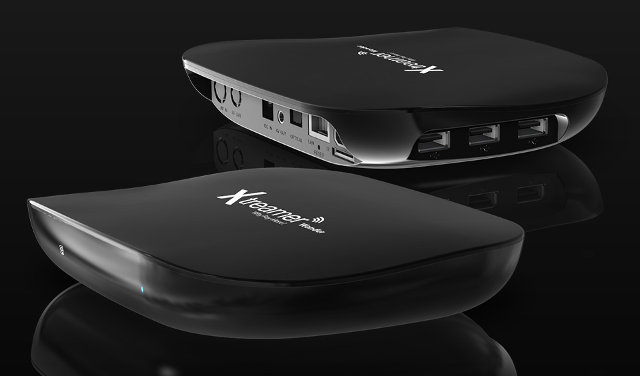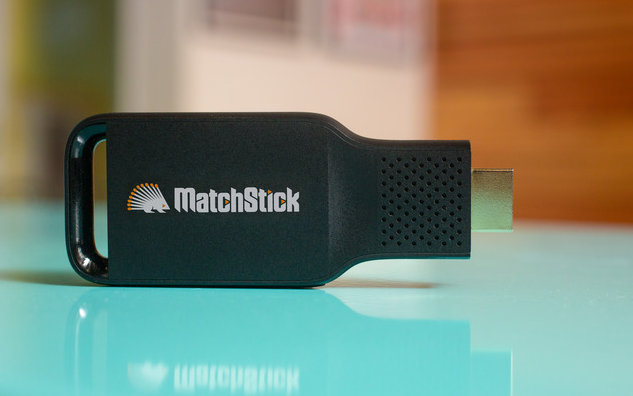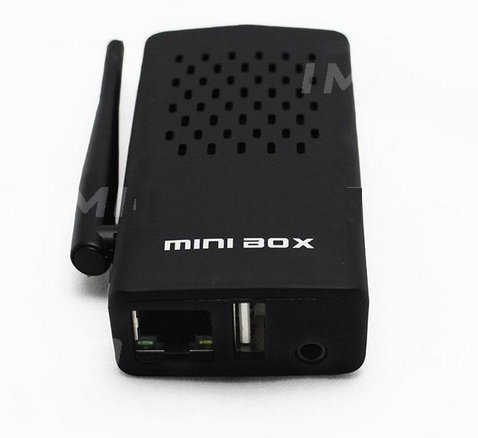Atmel has expanded its SAMA5 Cortex A5 embedded processor family with SAMA5D4 series adding an optional video processing unit capable of decoding H264, VP8 and MPEG4 at 720p / 30fps, as well as support for ARM NEON and TrustZone technology. There are also some other changes with regards to connectivity: no Gigabit Ethernet, more UART interfaces, less SPI interfaces, etc… Key features listed of Atmel SAMA5D4 series:: ARM Cortex-A5 core up to 528MHz (840DMIPS) with NEON & TrustZone support, 2x 32KB L1 cache, and 128KB L2 cache. Optional 720p hardware video decoder supporting H264/263, VP8, JPEG, and MPEG4. Graphic LCD TFT controller with overlays for image composition, resistive touchscreen controller. CMOS image sensor interface. Three high-speed USB ports (configurable as three hosts or two hosts and one device port). Dual EMAC 10/100 with IEEE1588 support (Precision Time Protocol). Other I/Os – 8x UART, 8x SPI, 4x TWI, 2 HS SDIO/SD/MMC, […]
ARM Announces mbed OS for ARM Cortex-M Micro-controllers and mbed Device Server for the Cloud
ARM has just announced two new software products for mbed development boards at ARM Techcon 2014: mbed OS, an operating system for Cortex-M MCUs, and mbed Device Server to handle IoT data in the cloud. Together with existing mbed hardware, these form what ARM now calls mbed IoT Device Platform. mbed OS is a free operating system for ARM Cortex-M processor with security, communication and device management features necessary to enable IoT devices. It will provide a C++ application framework, and the software stack includes support for Bluetooth Smart, 2G, 3G, LTE and CDMA cellular technologies, Thread, Wi-Fi, 802.15.4 / 6LoWPAN, TLS/DTLS, CoAP, HTTP, MQTT and Lightweight M2M. No need to look for your mbed board, planning to try it out just yet however, as mbed OS (alpha) will be available to partners in Q4 2014, and there will be alpha and beta releases during the course of 2015, before […]
STMicro STM32F4 (Cortex M4) vs STM32F7 (Cortex M7) Graphics Demo
STMicro announced their latest STM32F7 micro-controller family based on ARM Cortex M7 last week. As ARM Techcon 2014 is now taking place, the company has uploaded an infomercial on their YouTube account, where STMicro and ARM representatives are interviewed about the new family, and talk about its performance, power consumption, target applications, business prospects, and so on. But there’s also an a short demo with two development kits one with a STM32F4 cortex M4 micro-controller, and the other with a STM32F7 micro-controllers. Since both MCU families are pin-to-pin compatible, the hardware is identical except for the MCU. Both kits are pre-loaded with a 3D graphics demo (ray tracer), and the board with STM32F7 completes the demo in about half the time of the one with STM32F439, allegedly with about the same power consumption (7 coremarks / mW). The video is about 8 minutes long, and the demo starts at 1:25. […]
CALAO Systems Introduces PInBALL Industrial Board Based on Raspberry Pi Compute Module
CALAO Systems has just launched an industrial single board computer (SBC) for professional Raspberry Pi developers called PiNBALL or, if you prefer, PAC-1210-S200-B2835-EXX…. The board is powered by the Raspberry Pi Compute Module, features interfaces such as two mini PCIe slots (for USB, I2C, GPIOs,…), fast Ethernet, HDMI, opto-isolated inputs and outputs, etc., +6 to +36V power input, and can operate in -20°C to +70°C temperature range. PInBALL industrial SBC specifications (Items marker with ‘*’ are optional, and depend on model): SoC / Memory / Storage – Via Raspberry Pi Compute Module – Broadcom BCM2835, 512MB RAM, 4GB eMMC Flash. Other Storage – 1x 2Kb I²C EEPROM with EUI-48 MAC Address & 128 bit Serial Number (AT24MAC402). Video Output – 1x HDMI Out, 1x CVBS Out (BCM2835) Audio Output – 1x HDMI, 2x S/PDIF Out / Optical & RCA (WM8804), Connectivity – 1x Fast Ethernet (LAN9514), 1x Micro-SIM Socket USB […]
HydraBus is an Open Source Hardware STM32 Devkit with Support for NFC via HydraNFC Shield
Recently, I wrote about the public availability of a MicroPython board based on STMicro STM32F4 Cortex M4 support that can easily be programmed with Python. It turns out there’s another STM32 board called HydraBus, also supporting Micro Python firmware, or another embedded firmware based on ChibiOS, together with an optional HydraNFC shield capable of sniffing, reading/writing or emulating any 13.56MHz NFC tags. HydraBus Specifications: MCU – STMicro TM32F405RG micro-controller @ 168 MHz with 1MB flash, 192KB SRAM, and an FPU. External Storage – Micro SD card slot up to 48MHz (~24MB/s) Expansion Headers – 4 headers with access to 44 I/Os (some already used by micro SD and USB 1 & 2). USB – 2x micro USB connector including 1x OTG port, and 1x device/host port, both with ESD protection. Misc – Reset and user button, user LED, Power – 5V via micro USB port. Dimensions – 60mm x […]
Xtreamer Wonder Might Be the First Android Media Player Powered by Amlogic S812
Amlogic S812 processor is an upgrade of S802 processor with HEVC/H.265 hardware video decoding up to 3840×2160 resolution, and Gigabit Ethernet support, and it looks like the first Android TV boxes will start shipping by early November, starting with Xtreamer Wonder “TV entertainment system” running Android 4.4 Kitkat and XBMC / Kodi. Xtreamer Wonder specifications: SoC – Amlogic S812-H quad core cortex A9r4 @ 2 GHz with Mali-450MP6 GPU System Memory – 2GB DDR3 Storage – 16GB eMMC 5.0 + micro SD card reader Connectivity – 10/100M Ethernet, 802.11 b/g/n Wi-Fi, Bluetooth 4.0 Video Output – HDMI 1.4 Audio Output – HDMI, optical S/PDIF Video Container Formats – DAT, MPEG, MPE, MPG, TS/TP, VOB, ISO, AVI, MP4, MOV, 3GP, FLV, MKV, M2TS, MTS, M4V, WMV, ASF, RM/RMVB, etc… Audio Formats – MP2, MP3, WMA, WAV, OGG, OGA, FLAC, ALAC, APE, AAC etc… Dolby Digital, Dolby Digital+, and DTS USB – […]
$18 Matchstick is an HDMI TV Stick Running Firefox OS (Crowdfunding)
A few month ago, a Firefox OS HDMI streaming stick (codenamed netcast) by Mozilla that would compete with Google Chromecast was previewed. It is now called Matchstick, based on Rockchip RK3066 and has just been launched on Kickstarter. MatchStick technical specifications: SoC – Rockchip RK3066 dual core Cortex A9 processor @ 1.2 GHz with Mali-400 MP4 GPU System Memory – 1GB DDR3 (micron) Storage – 4 GB flash. (FORSEE, NCEFES86 eMMC) Video Output – HDMI Connectivity – 802.11 b/g/n Wi-Fi (AP6181?), but the board supports other Wi-Fi modules include AP6210 and AP6330, and many people are asking for dual band Wi-Fi in comments, so maybe a stretch goal… USB – 1x micro USB port for power Power – 5V via micro USB port. TPS659102 PMIC. Dimensions – 110 x 40 x 11 mm The Firefox OS dongle will come with an HDMI extension Cable, a micro USB Cable, and a […]
Finally… An Android TV Stick with an Ethernet Port
Ever since MK802 hit the market in April 2012, I’ve been expecting HDMI TV Sticks with Ethernet ports, but it never really materialized. There have been many small TV boxes, but AFAIK none of which could simply be insert in the back of your TV. Thanks to MK802 V we now have an HDMI TV dongle, powered by Rockchip RK3288 quad core Cortex A12/A17 processor, featuring an Ethernet port. MK802 V specifications: SoC – Rockchip 3288 quad core ARM Cortex A12/A17 up to 1.8 GHz with Mali-T764 GPU System Memory – 2 GB DDR3 Storage – 8 GB NAND flash (16GB optional) + micro SD slot (up to 32GB) Video / Audio Output – HDMI 2.0 (male) Video Codecs – MPEG-1, MPEG-2, MPEG-4, H.263, H.264, H.265, AVS, VC-1, RV, VP6/VP8, MVC (1080p) Sorenson Spark, MVC up to 4K2K @ 60fps Audio Formats – MP1, MP2, MP3, WMA, WAV, OGG, OGA, […]


